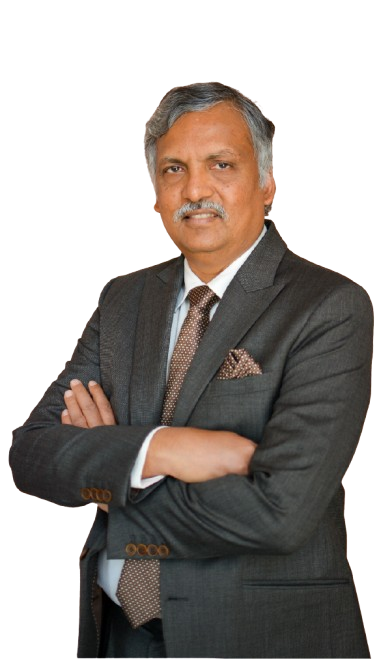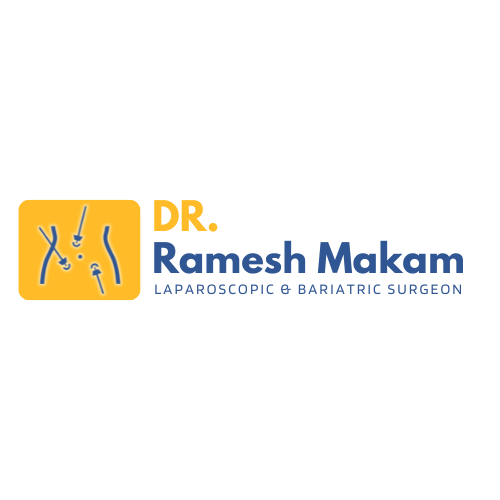Hernia Surgery

Hernia Surgery in Bangalore by Dr. Ramesh Makam
Top-Quality Hernia Care with India’s Leading Surgeon
Dr. Ramesh Makam is recognized as one of India’s best hernia surgeons, with over 35 years of experience in treating various types of hernias. At Arka Anugraha Hospital in Bangalore, we are proud to be South India’s only hospital recognized as a Center of Excellence by the Asia Pacific Hernia Society.
Dr. Makam specializes in minimally invasive hernia surgeries, including laparoscopic hernia repair, to ensure less pain, smaller scars, and a quicker recovery for patients. He has successfully performed thousands of hernia surgeries, treating inguinal, umbilical, hiatal, and incisional hernias with expert precision.
At Arka Anugraha Hospital, we provide complete, patient-focused care—from pre-surgery counseling to post-operative support—making sure you feel supported every step of the way. With Dr. Makam’s skill and our hospital’s high standards, you can trust that you’re in the best hands for effective and comfortable hernia treatment in Bangalore.
Why Choose Dr. Ramesh Makam for Hernia Surgery?
35+ years of experience
Dr. Ramesh Makam is one of India’s top hernia surgeons, with a proven track record of treating all types of hernias using the latest techniques.
Thousands of Successful Surgeries
He has performed thousands of hernia surgeries, including inguinal, umbilical, hiatal, and incisional hernias, delivering outstanding results and patient satisfaction.
Expert in Minimally Invasive Surgery
Specializes in laparoscopic hernia repair, offering less pain, tiny scars, and a quick recovery compared to traditional surgery. This means you’re back on your feet faster!
Center of Excellence
Our hospital, Arka Anugraha, is recognized by the Asia Pacific Hernia Society as South India’s only Center of Excellence, guaranteeing top-quality care and expertise.
Award-Winning Surgeon
Dr. Makam has been honored with prestigious awards like the DR. B.C. Roy Memorial Award for his contributions to surgery and patient care.
State-of-the-Art Facilities
We use the latest technology and surgical methods, ensuring you get personalized, patient-focused treatment every step of the way.
Comprehensive Care
From pre-surgery counseling to post-operative support, Dr. Makam’s approach ensures a smooth, stress-free experience tailored to your needs.

What is a Hernia?
A hernia occurs when an organ or fatty tissue pushes through a weak spot in the surrounding muscle or connective tissue, often creating a noticeable bulge. Hernias can cause discomfort, pain, and sometimes serious complications if left untreated. While they can happen in various parts of the body, they are most commonly found in the abdomen and groin. The main goal of hernia surgery is to place the organ or tissue back into its proper position and strengthen the weakened area to prevent recurrence.
Types of Hernia
When part of the intestine or fatty tissue pushes through the abdominal wall near the navel (belly button). Common in infants but also occurs in adults.
The most common type, where the intestine protrudes through the abdominal wall or into the inguinal canal in the groin. Frequently affects men.
Develops at the site of a previous surgical incision when the abdominal muscles become weak. Often seen in patients after abdominal surgeries.
Occurs along the side of the abdominal muscles (spigelian fascia). Harder to detect and may cause complications due to its deep location.
A bulge near the upper thigh or groin caused by tissue pushing through the femoral canal. More common in women, especially during pregnancy.
A rare type where the intestine pushes through the obturator foramen in the pelvic bone, often affecting older women.
Occurs when organs from the abdomen push into the chest cavity through an opening in the diaphragm. It can be congenital or result from injury.
Found in the lower back, where tissue pushes through a weakness in the lumbar region of the spine.
Forms between the navel and breastbone, often involving fatty tissue pushing through the abdominal wall.
Common Procedures We Perform

Keyhole repair
A minimally invasive technique with small incisions and camera guidance reduces pain, scarring, and recovery."

Open Hernia Repair
Involves a larger incision to access, expose, and repair the hernia. Best suited for large or more complex hernias.

Robotic Hernia Repair
An advanced form of laparoscopic surgery using robotic assistance for precise repairs, particularly for complex hernias.

Laser Hernia Repair
Uses advanced laser technology for small incisions, resulting in less pain, reduced bleeding, and a quicker recovery.
Risk Factors for Hernia
- Heavy Lifting: Regularly lifting heavy objects can weaken abdominal muscles, increasing the risk of hernia.
- Chronic Cough: Persistent coughing puts pressure on the abdominal wall, contributing to hernia development.
- Obesity: Excess body weight strains muscles and tissue, making them more prone to weakness.
- Pregnancy: Increases pressure on the abdomen, which can lead to hernia formation, especially umbilical hernias.
- Previous Surgeries: Incisional hernias often occur at the site of past surgeries due to muscle weakness.
- Aging: As muscles weaken with age, the likelihood of developing a hernia increases.
What If a Hernia Is Left Untreated?
Ignoring a hernia can lead to serious health problems. While some hernias might not seem like a big deal at first, they won’t go away on their own and often get worse over time. Here’s what can happen if you leave a hernia untreated:
Types of Hernia
- The hernia can grow larger, causing constant pain and discomfort.
Simple activities like lifting, coughing, or standing can become painful.
- The longer it’s left untreated, the more the hernia can increase in size.
- A larger hernia is harder to repair and may need a more complex surgery.
- Intestinal hernias can block the passage of food and waste.
- Symptoms include severe pain, nausea, vomiting, and inability to pass gas or have a bowel movement.
- This situation often requires emergency medical attention.
- The most dangerous risk is strangulation, where the hernia cuts off the blood supply to trapped tissue.
- Signs of a strangulated hernia include:
- Sudden, severe pain
- Redness or dark discoloration of the bulge
- Nausea and vomiting
- Fever
- This is a life-threatening emergency that can lead to tissue death and requires immediate surgery.
- A strangulated hernia can lead to a serious infection in the abdomen, which can spread and become life-threatening.
- Hernias like hiatal or diaphragmatic hernias can affect nearby organs.
- Can lead to issues like acid reflux, difficulty swallowing, or breathing problems.

The Bottom Line:
Get It Treated Early!
If you think you have a hernia, it’s important to get it checked as soon as possible. Early treatment can prevent these complications and make recovery easier. Dr. Ramesh Makam in Bangalore specializes in minimally invasive hernia surgeries to ensure a quick and safe recovery.
